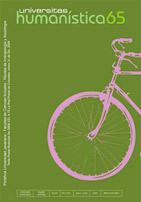Abstract
In this article, I explore the basis for black identity in Latin America. I begin with a general consideration of the position of black populations in the framework of Latin American nationalism, taking into account the transnational dimensions of this position and then analyzing in theoretical terms the tension between particularism and universalism in ideologies of nationalism and racism. In the second part of the article, I examine some concrete historical cases of Afrodescendent mobilization and/or opening towards racial diversity in order to evaluate these as bases for a Latin American black identity in general (the racial war in Cuba in 1912, the Frente Negra Brasileira of the 1930s, the Creoles in the Sandinista regime in Nicaragua, the official multiculturalism of various Latin American countries in the 1990s, and the image of “Africa” as the basis for Afrodescendant identification).
This journal provides immediate open access to its content on the principle that making research freely available to the public, encourages greater global exchange of knowledge.
The journal Universitas Humanística is registered under a Creative Commons Attribution 4.0 International Public License. Thus, this work may be reproduced, distributed, and publicly shared in digital format, as long as the names of the authors and Pontificia Universidad Javeriana are acknowledged. Others are allowed to quote, adapt, transform, auto-archive, republish, and create based on this material, for any purpose (even commercial ones), provided the authorship is duly acknowledged, a link to the original work is provided, and it is specified if changes have been made. Pontificia Universidad Javeriana does not hold the rights of published works and the authors are solely responsible for the contents of their works; they keep the moral, intellectual, privacy, and publicity rights.
Approving the intervention of the work (review, copy-editing, translation, layout) and the following outreach, are granted through an use license and not through an assignment of rights. This means the journal and Pontificia Universidad Javeriana cannot be held responsible for any ethical malpractice by the authors. As a consequence of the protection granted by the use license, the journal is not required to publish recantations or modify information already published, unless the errata stems from the editorial management process. Publishing contents in this journal does not generate royalties for contributors.


